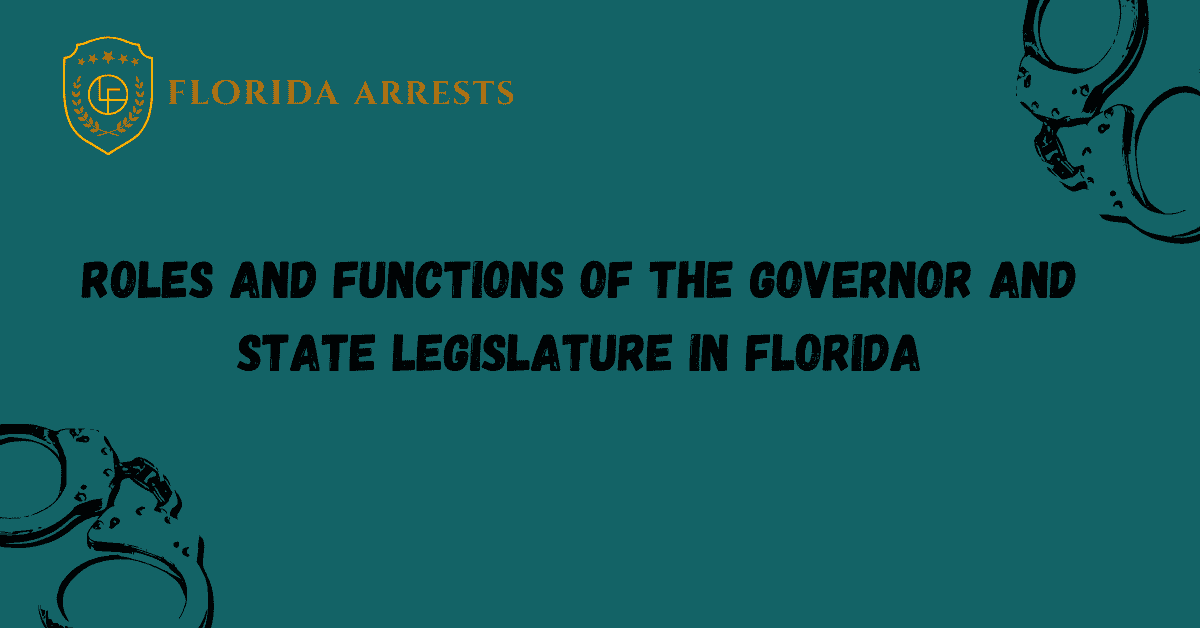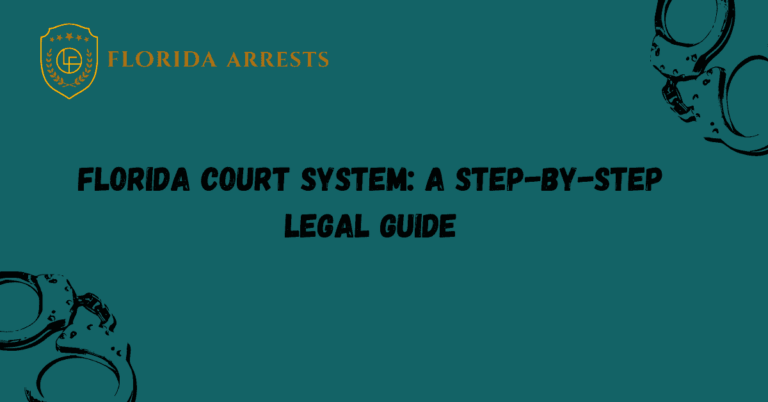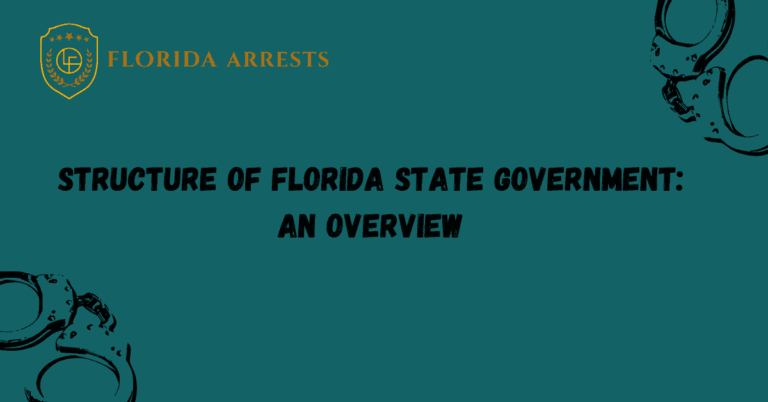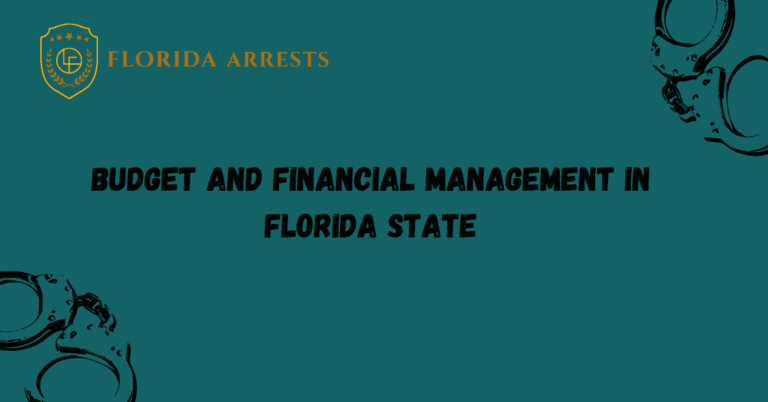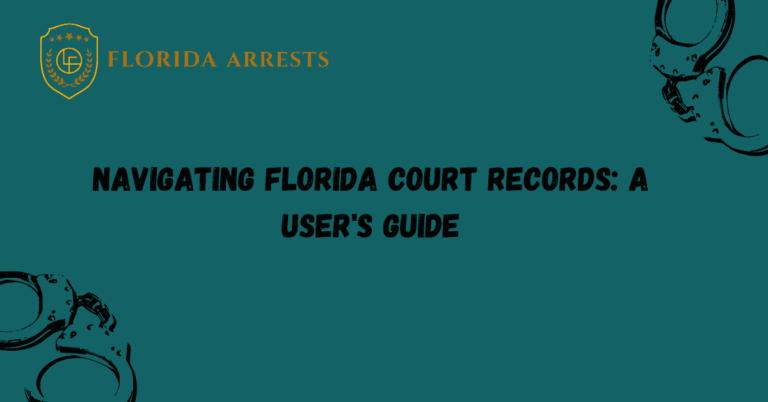Roles and Functions of the Governor and State Legislature in Florida
The roles and functions of the Governor and State Legislature in Florida are vital to the functioning of the state government. The Governor, as the chief executive, is responsible for overseeing the day-to-day operations of the state and implementing policies and programs. They have the power to appoint and remove officials, veto legislation, and call special sessions of the legislature.
The State Legislature, consisting of the Senate and the House of Representatives, is responsible for making and passing laws. They have the power to propose and debate legislation, approve the state budget, and conduct investigations. The legislature also plays a crucial role in checks and balances, as they can override a Governor’s veto with a supermajority vote.
The Role of the Governor
The Governor of Florida serves as the chief executive of the state government and plays a crucial role in overseeing its day-to-day operations. They are responsible for implementing policies and programs that benefit the state and its citizens. One of the main functions of the Governor is to appoint and remove officials, ensuring that the state government operates efficiently and effectively.
The Power of Veto
One of the significant powers of the Governor is the ability to veto legislation. This means that if the Governor disagrees with a bill passed by the State Legislature, they have the authority to reject it. The veto power acts as a check on the Legislature and ensures that any laws passed are in the best interest of the state and its residents.
Special Sessions
In addition to their veto power, the Governor can also call special sessions of the State Legislature. These sessions are called to address specific issues or emergencies that require immediate attention. By convening a special session, the Governor can ensure that the Legislature focuses on critical matters and takes necessary action to address them promptly.
The Role of the State Legislature
The State Legislature of Florida is composed of two chambers: the Senate and the House of Representatives. Together, they are responsible for making and passing laws that govern the state. The Legislature plays a crucial role in the democratic process, as they represent the interests of the people and ensure that their voices are heard.
Proposing and Debating Legislation
One of the primary functions of the State Legislature is to propose and debate legislation. Members of the Legislature, both in the Senate and the House of Representatives, have the power to introduce bills that address various issues and concerns. Through rigorous debate and discussion, they work towards crafting laws that reflect the needs and aspirations of the people they represent.
Approving the State Budget
Another critical responsibility of the State Legislature is to approve the state budget. This involves reviewing the proposed budget presented by the Governor and making necessary adjustments or modifications. By approving the budget, the Legislature ensures that the state’s financial resources are allocated appropriately to various programs and services, benefitting the residents of Florida.
Checks and Balances
The State Legislature serves as an important check on the power of the Governor. If the Governor vetoes a bill, the Legislature has the ability to override the veto with a supermajority vote. This ensures that decisions made by the executive branch are subject to scrutiny and consensus among the legislative representatives, leading to a more balanced and accountable system of governance.
FAQs
What are the roles and functions of the Governor in Florida?
The Governor of Florida serves as the chief executive officer of the state. They are responsible for implementing and enforcing state laws, overseeing the state budget, appointing officials, and representing the state in various capacities. The Governor also has the power to veto legislation and call special sessions of the legislature.
What are the roles and functions of the State Legislature in Florida?
The State Legislature in Florida is composed of the Senate and the House of Representatives. Its primary role is to make laws for the state. The Legislature also has the power to approve the state budget, confirm appointments made by the Governor, and propose amendments to the state constitution. Additionally, the Legislature plays a crucial role in overseeing the activities of state agencies and ensuring accountability.
How does the Governor influence the legislative process in Florida?
The Governor in Florida holds significant influence over the legislative process. They can propose legislation, set priorities for the state, and use their veto power to reject bills passed by the Legislature. The Governor also has the ability to call special sessions to address specific issues. By working with legislators and leveraging their position, the Governor can shape the legislative agenda and influence the outcome of important bills.
What is the relationship between the Governor and the State Legislature in Florida?
The Governor and the State Legislature in Florida have a complex relationship. While they are separate branches of government, they must work together to achieve their respective goals. The Governor often collaborates with legislators to pass key initiatives and secure funding for important projects. However, conflicts can arise when the Governor and the Legislature have differing priorities or visions for the state’s future. In such cases, negotiations and compromises are necessary to reach consensus.
How do the Governor and the State Legislature impact the lives of Floridians?
The Governor and the State Legislature play a crucial role in shaping the lives of Floridians. Through their decisions and policies, they impact various aspects of daily life, including education, healthcare, transportation, and the economy. They have the power to enact laws that can improve the quality of life, protect citizens’ rights, and promote economic growth. Additionally, the Governor and the Legislature can address pressing issues and respond to the needs of the state’s diverse population.
What checks and balances exist between the Governor and the State Legislature in Florida?
In Florida, there are checks and balances in place to ensure that neither the Governor nor the Legislature becomes too powerful. The Governor’s veto power allows them to reject legislation passed by the Legislature, while the Legislature can override the veto with a supermajority vote. The Legislature also has the authority to impeach the Governor for misconduct. Additionally, the judiciary acts as a check on both branches, ensuring that their actions are in accordance with the state constitution.

